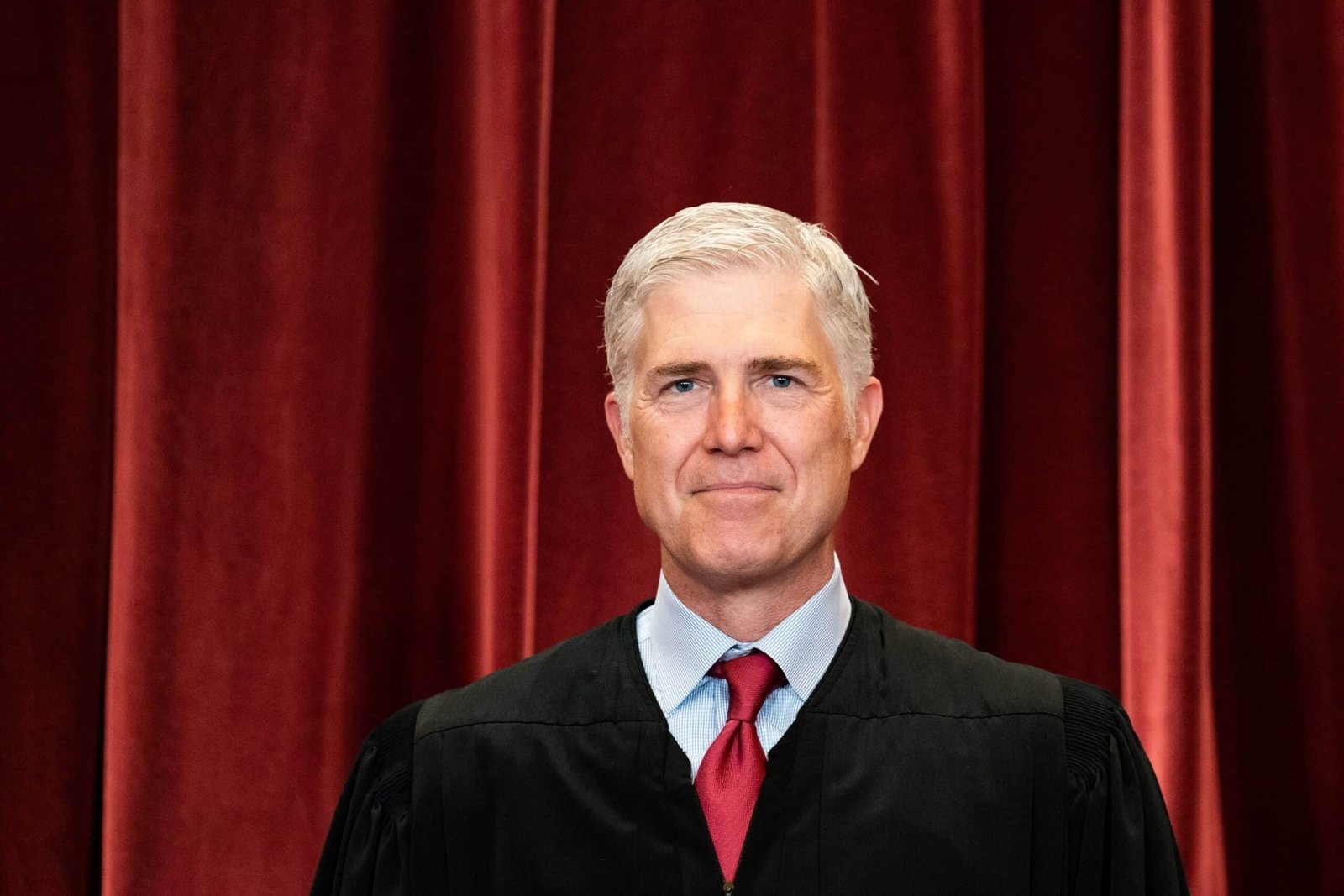Judge Ketanji Brown Jackson unloaded his colleagues from the Supreme Court on Friday in a series of acute dissidents, punishing what he called a “pure textualism” approach to interpret the laws, which she had become a pretext to ensure their desired results and imply that conservative judges have deviated from their oath by showing favoritism to “interests.”
The attack on the conservative majority of the Court for the Junior Justice and the member of the Liberal Wing is remarkably pointed and aggressive, but stops in personnel. He revealed the divisions marked in the court and the frustration accumulated in the minority about what Jackson described as an inconsistent and unfair application of the precedents for those in power.
Jackson aimed at Judge Neil Gorsuch Majority opinion In a case presented by a retired firefighter from Florida with Parkinson’s disease he had tried to sue under the Law of Americans with disabilities after his former employer, the city of Sanford, canceled the extended health insurance coverage for retirees who left force before turning 25 years due to a disability.

The associated judge Neil Gorsuch is found during a group photo of the judges in the Supreme Court, on April 23, 2021.
Erin Schaff/Pool/Getty Images
Gorsuch wrote that historical law only protects “qualified individuals” and that retirees do not count. The ADA defines the classified class as those that “can perform the essential functions of the employment position that this individual possesses or wants.”
“This court has long recognized that textual limitations on the scope of a law should be understood as a part of its purpose than its substantive authorizations,” Gorsuch concluded in his opinion in Stanley V. Sanford City. He joined all conservatives and the liberal justice of the Elena Kagan Court.
Jackson responded, accusing his colleagues of achieving a “tacylizing result” and deliberately ignoring the “clear design of the ADA to issue a decision that clearly counteracts what Congress meant, and made, achieve with the law. She said they had” run in a series of textual circles “and that most” closes their eyes to the context, the history of promulgation and the objectives of the legislature. “
“I can’t bear that narrow mind approach,” he wrote.

The associated judge Ketanji Brown Jackson poses for an official portrait in the Conferences Room of the East of the Supreme Court building, on October 7, 2022.
Alex Wong/Getty Images
Gorsuch replied that Jackson simply complained that textualism did not give him the result he wanted, which led Jackson to take the rare step of using a long note to accuse his colleague of the same.
To say that most have an “unfortunate misunderstanding of the judicial role,” Jackson said that the “negative” of his colleagues to consider the intention of the Congress behind the ADA “converts the interpretive task into a powerful weapon to advance in judicial policy preferences.”
“Finding ‘answers in ambiguous text,” he wrote, “and not bother to consider whether these answers are aligned with other sources of legal significance, pure textualists can easily disguise their own preferences.”
Justice Sonia Sotomayor, who joined Jackson’s dissent, explicitly did not sign the footnote.
Judge Elena Kagan, a member of the liberal wing, joined the conservative majority in the three cases in which Jackson dissent, but did not explain her views. In 2015, Kagan said: “We are all textualists now” from the Court, but years later rejected that approach for alleged abuse by conservative jurists.

United States Supreme Court (Front Row LR) Associate Justice Sonia Sotomayor, Associate Justice Clarence Thomas, Chief Justice of the United States John Roberts, Associate Justice Samuel Alito, and Associate Justice Elena Kagan, (Back Row Lr) Associate CONEY BARRETT, Associate Justice Neil Gorsuch, Associate Justice Brett Kavanaugh and Associate Justice Ketanji Brown Jackson Pose for Their Portrait At the East Conference Sala of the Supreme Court building, October 7, 2022.
Alex Wong/Getty Images
In two other cases determined on Friday, Jackson accused his colleagues of distorting the law to benefit the main US companies and doing so “public confidence erodes.”
She disincted from Judge Amy Coney Barrett’s Majority opinion In the coating of the great tobacco manufacturer, RJ Reynolds Vapor Co., which gives retailers the ability to sue the food and medication administration for the denial of new applications of products for electronic cigarettes.
Barrett concluded that a federal law intended to regulate the manufacture and distribution of new tobacco products also allows retailers to sell the products to seek a judicial review of an adverse decision of the FDA.
Jackson launched the conclusion as “illogical” again leading his colleagues to the task of not considering sufficiently the intention of the Congress or the long -standing precedent. “All available indicators reveals that Congress intended to allow manufacturers, not retailers, challenge denial,” he wrote.
7-2 of the Court decision By Judge Brett Kavanaugh, giving gasoline producers the right to sue California for limits on emission producers, Jackson said his colleagues were favoring the fuel industry on “less powerful claimants.”
“This case forages to the unfortunate perception that wealthy interests enjoy an easy way towards relief in this court than common citizens,” he wrote.
Jackson argued that the case should have been discussed, since the Trump administration withdrew the approval of the EPA for California emissions standards, thus eliminating any alleged damage to the automobile and fuel industry.

The Supreme Court, September 28, 2020, in Washington, DC
To the Drago/Getty Images
“Those of us who have the privilege of working within the Court should not lose sight of the unique mission and responsibility of this institution: to govern without fear or favor,” he wrote, admonishing his colleagues.
The court is scheduled to convene on Thursday, June 26 to release another round of opinions in cases argued this term. Decisions are expected in a dispute on the verification of the online age for adult websites, the rights of exclusion of parents for children in public schools exposed to LGBTQ issues and the scope of national mandates against the second -period policies of President Donald Trump.



